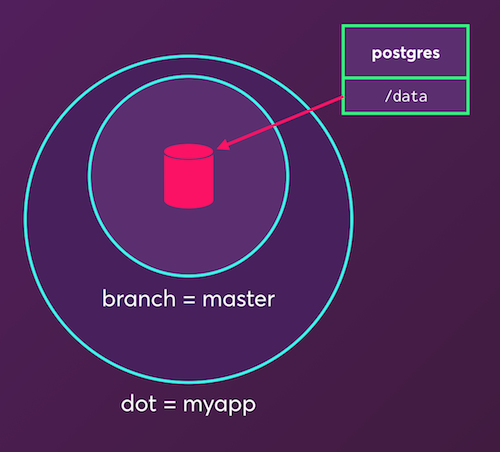Dotmesh is a git-like CLI for capturing, organizing and sharing application states.
In other words, it's a snapshotting tool for databases and other filesystem states.
The application states that dotmesh captures are stored in datadots.
It can capture the state of multiple databases, each one in a subdot, in a single atomic commit.
Install the dotmesh client dm:
sudo curl -sSL -o /usr/local/bin/dm \
https://get.dotmesh.io/$(uname -s)/dm
Make the client binary executable.
sudo chmod +x /usr/local/bin/dm
Then use the client to install dotmesh-server, assuming you have Docker installed and your user account has access to the Docker daemon.
dm cluster init
Checking suitable Docker is installed... yes, got 17.12.0-ce.
Checking dotmesh isn't running... done.
Pulling dotmesh-server docker image...
[...]
This will set up a single-instance cluster on your local machine.
Verify that the dm client can talk to the dotmesh-server:
dm version
If the installation fails, please report an issue. You can also experiment in our online learning environment. Thanks!
See the installation docs for more details, including installing dotmesh on Kubernetes.
Try our hosted tutorial!
Alternatively, try the hello Dotmesh on Docker guided tutorial.
A datadot allows you to capture your application's state and treat it like a git repo.
A simple example is to start a PostgreSQL container using a datadot called myapp:
docker run -d --volume-driver dm \
-v myapp:/var/lib/postgresql/data --name postgres postgres:9.6.6This creates a datadot called myapp, creates the writeable filesystem for the default master branch in that datadot, mounts the writeable filesystem for the master branch into /var/lib/postgresql/data in the postgres container, and starts the postgres container, like this:
First, switch to it, which, like cd'ing into a git repo, makes it the "current" dot -- the dot which later dm commands will operate on by default:
dm switch myappYou can then see the dm list output:
dm list DOT BRANCH SERVER CONTAINERS SIZE COMMITS DIRTY
* myapp master a1b2c3d /postgres 40.82 MiB 0 40.82 MiB
The current branch is shown in the BRANCH column and the current dot is marked with a * in the dm list output.
- Learn more in the concept docs.
- Try another tutorial.
